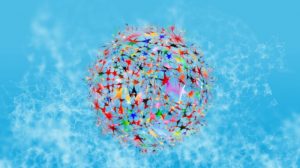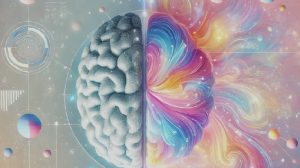“Learn the rules like a pro, so you can break them like an artist.”
Pablo Picasso
The importance of lifelong soft skills becomes increasingly acknowledged, as we try to find our way through the difficulties of communication in our changing world. Lifelong skills can gradually enhance our capabilities to adapt to new realities and facilitate personal growth.
A recent study shows that hard and soft skills often overlap and soft skills are interpersonal and visual qualities learned through experience. The two types of skills are classified separately but, also depend on each other. Soft skills are versatile competencies applicable across industries and may include communication, teamwork, collaboration, creativity, problem-solving, and critical thinking.
Five Helpful Lifelong Soft Skills
Learning soft skills is not as easy as we may think because unlike hard skills the soft skills acquisition and integration timeframe is different. These skills have broad applicability in our lives and provide long-term benefits. Areas like leadership, social networking and decision-making have increased in importance over a lifetime. The emergence of AI tools and their influence on workplaces is a wake-up call to start valuing basic lifelong skills that make us different and unique.
1. Effective communication
The most important basic skill of all is communication because it is a basic skill with a great impact on career development and professional life. Studies show that some industries consider communication skills the most important soft skills, especially for Generation Z. Communication is a complex skill with deep socio-psychological implications in our lives and a base skill upon which more complex skills are developed, structured and built.
How people communicate will shape their work interactions and how much they will get involved in interactions and adapt to new environments. Achieving efficiency in communication is strongly linked to being an active listener. Practising active listening might make the difference in being a poor or efficient communicator, and can empower people to interact, understand and respond to each other appropriately.
2. Creativity
Creativity is the most precious skill you can possess in these changeable and inconsistent times. Creative people have been initiators of innovations and inventions across humanity’s history. Nowadays, because of AI tools creativity has become a key skill setting people apart from machine intelligence.
Coming up with new ideas, solutions and answers has always been a valuable skill in any industry or working context. Viewing problems as opportunities rather than obstacles is where problem-solving and creativity go together. Obviously, people capable of thinking outside the box have more opportunities in their career paths.
According to a Future of Work survey, creativity is one of the most important skills companies will prioritize for reskilling until 2027. Most leaders are aware that ingenious solutions will future-proof their businesses and positively impact communities. Having colleagues with creative visions motivates and inspires teams to get involved and accomplish more.
3. Lifelong learning
In the context of AI growth, lifelong learning has become a critical and precious skill that has the potential to achieve future favourable professional outcomes. Lifelong learning as a skill can be related to learning how to learn. The benefits of lifelong learning and development are more obvious in agile organisations or those that adopt continuous learning. It seems that certain skills have a lifespan shorter than others and overall the average tech skill has a lifespan of 2 years or less. However, constant acquisition of knowledge and skills during our existence is also a good and strategic solution for employers to fulfil their changing hiring needs.
Embracing learning as a core lifelong skill can lead to a more accomplished professional life and an easier development path. Lifelong learning is also a mindset that has an intrinsic value for both our personal and professional growth journey. It can be a useful strategic mindset that answers one of our primary needs for adaptation in changing environments.
Constantly learning new things and acquiring new expertise and knowledge can lead to valuable opportunities and gratifying life experiences. The constant willingness to develop new skills and acquire up-to-date information will help us respond to the different turns and shifts in markets.
4. Empathy
Empathy is one of the most complex human behaviours and can be seen as both an innate trait and a soft skill. It is related to understanding and sharing the feelings of another person feelings from their perspective. Developing empathic behaviours facilitates a better understanding of people’s inner resorts of their actions.
Studies reveal that by imitating or simply observing emotional facial expressions, similar neuronal networks are activated in our brains. Empathy can foster cooperation by understanding people’s points of view. Practising empathy throughout our entire lives can facilitate our growth.
Being an empathetic person depends on exposure to experiences that determine people to help and understand each other. So, the more we practice it, the more neural circuits associated with empathetic behaviours are strengthened over time. People can develop cognitive empathy by combining role-playing with perspective-taking exercises to reinforce and learn to be empathic.
5. Problem-Solving
Because of generative AI, some workloads can be replaced. A McKinsey report shows that companies focus more on retraining employees and less on hiring to meet skill needs. Also, it seems that 30% of the workload could be automated by 2030. But, in Europe, demand for social and emotional skills could increase by 11 %.
Problem-solving skills are essential when dealing with complex issues both at the workplace and in private life. Daily challenges need solutions in this constantly unpredictable and evolving world. Problem-solving involves breaking down complex issues to identify root causes and find appropriate solutions. It builds on creative thinking and empathy skills to uncover new ways to address challenges.
A recent study showed that people who use their emotions and feelings when solving problems are better at problem-solving. Therefore, when training people in emotional regulation skills, their problem-solving skills are getting better.
Overall, problem-solving is essential for addressing professional responsibilities and finding effective solutions. It builds on critical thinking and is important for professional success. So, a good problem-solving track record throughout a career path can demonstrate leadership potential to employers. Solving difficult situations under pressure is a strength and a suitable competency to take on new responsibilities.
Soft skills can balance hard skills
Regardless of the impact of technology adoption on workforce environments and employment, soft skills can make a difference in the future of work. Even if there is a higher demand for technical jobs, organisational cultures need a balance. Soft skills like efficient communication or creativity are balancing and leveraging tech skills. Organisations need to foster a positive culture so people can interact better, be creative and thrive.
In the long term, effective communication, lifelong learning, creativity, empathy and problem-solving are skills that we can rely on to pursue different career pathways. Learning and developing these soft skills is a modality to address technological changes and social disruptions.
While soft skills are difficult to measure their impact cannot be underestimated. Constantly improving these skills can have long-term benefits for our well-being and help us to stay connected. We rely on our traits and qualities both in our personal lives and in professional interactions. So, cultivating soft skills is a win-win situation that strengthens hard skills, career growth, and well-being.





